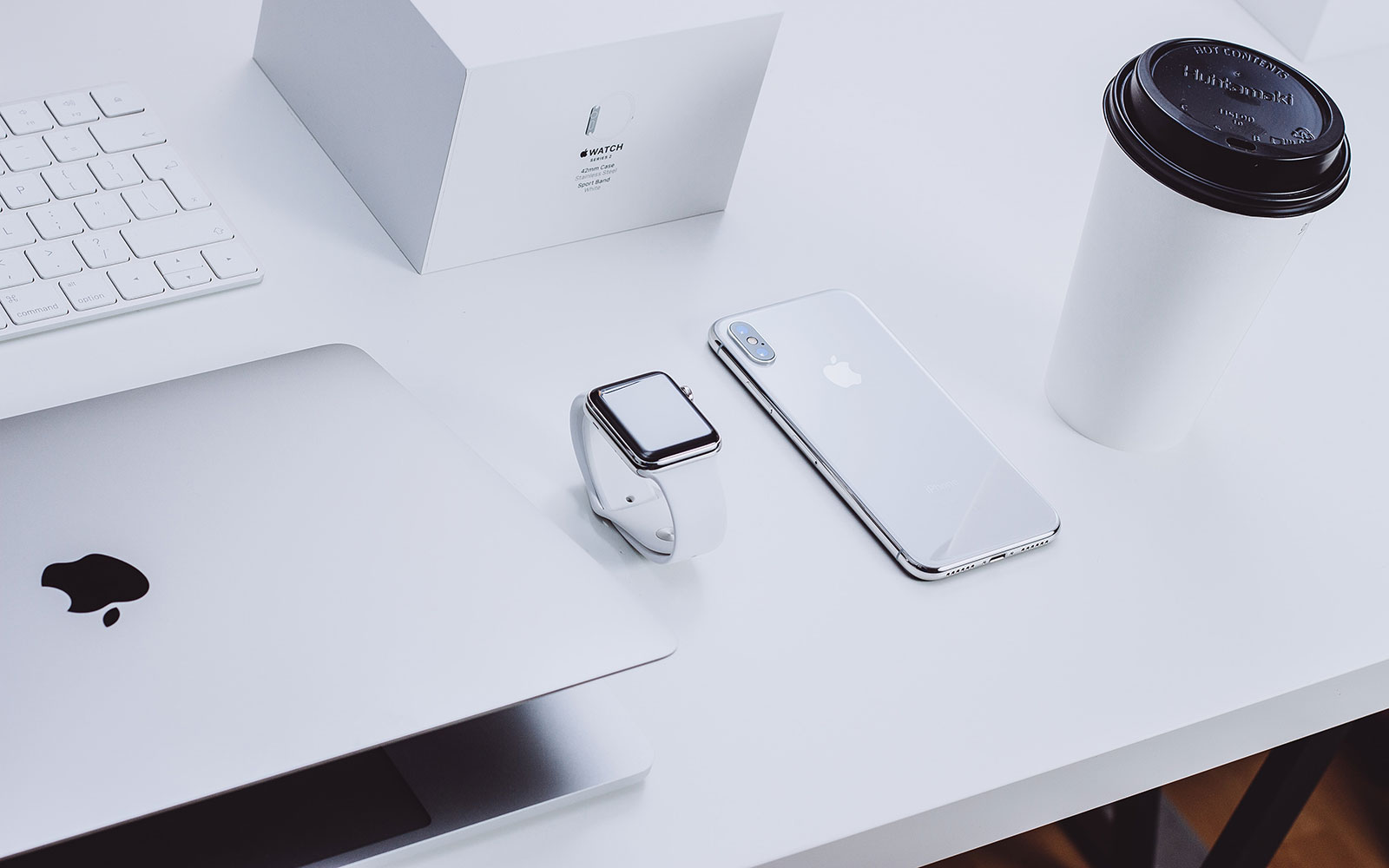Apple has a devoted fanbase that borders on cult-like, with fans often camping outside stores overnight to be among the first to buy the latest iPhone models that cost upwards of $1000. As a college student learning Photoshop and After Effects, I was a loyal Mac user, but the platform’s lack of multitasking capabilities limited my productivity. Though I purchased the first iPhone when it was released, I eventually switched to a PC for gaming and cost savings.
Despite skeptics’ doubts that Apple could thrive without Steve Jobs, Tim Cook has successfully led the company to a market capitalization of over $2.5 trillion, rivaled only by Amazon and Microsoft. Apple’s ecosystem, including products such as Apple TV, AirPods, and the MacBook, is well-designed and integrated, focusing on delivering a seamless user experience.

Photo by Michał Kubalczyk on Unsplash
Coming back to the point of this article, what are some of the other products equivalent to Apple in their respective industry.
Here is a list of three companies in a different sector that offer products and services on par with Apple.
1. Dyson
Yes, don’t be surprised if we did not start the list with a phone or other electronic gadget. Dyson products are simple to use and are very useful in their job. My wife swears by it, each time she uses cordless Dyson V11, she thanks me for getting it.
Instead of a mess that other vacuums make while emptying the bin, Dyson makes the process simple with one button push to empty the bin. One of the most valuable products they created was a cordless vacuum cleaner. While it is not as powerful as the traditional wired vacuum, it is much easier to use, and onboarding experience is instant.
With each new model, Dyson optimizes the battery, and now it is good enough to clean the large house in one charge. Dyson even attempted to make an electric but scarped the project last year. Dyson Vacuum is probably not the most potent vacuums, but the form factor and ease of use beats any other home vacuum. (Remind you of another company?)
2. Tesla
While I do not own Tesla, looking at the reviews and enough hype about those Tesla cars, it is evident that this is the car Apple should’ve made. They introduced 12.3′ display in the dashboard. Most of the car functions are controlled by the large screen instead of physical knobs. New features can be turned on by the software upgrade. The introduction of autonomous software is a big step forward, and it’ll only get better. According to Elon Musk, Tesla is “Very close” to level 5 autonomous driving technology. Other cars are following Tesla’s lead.
In addition to the advanced technology implemented in Tesla cars, the company’s stock has also experienced a significant rise in recent years. In 2020, Tesla’s stock price surged more than 740%, making it the most valuable car company in the world. This rise in stock price can be attributed to the company’s success in the electric vehicle market and its cult-like online following. Tesla has a dedicated fanbase that is highly active on social media, often sharing news and updates about the company and its products. This has helped to create a buzz around the brand, leading to increased demand for its vehicles and ultimately contributing to the company’s success.
Additionally, Tesla’s innovative approach to marketing and its focus on creating a unique customer experience have helped to set it apart from other car manufacturers. The company has also made headlines for its unconventional CEO, Elon Musk, known for his ambitious goals and eccentric behavior. These factors have contributed to Tesla’s rise as a leader in the electric vehicle market and a cult-like following among its fans.
3. Starbucks
Starbucks has always been known for its high-quality products and exceptional customer service. However, they have made significant strides in the digital space in recent years. One of their major successes has been their mobile app, which has experienced significant growth in recent years. The app makes it incredibly easy to order drinks, with different spots for pickup to ensure a seamless experience.
The COVID-19 pandemic forced many businesses to adapt to new operating methods, and Starbucks was no exception. Their digital transformation has positioned them to thrive in the post-pandemic world, where customers seek contactless shopping. The app’s success has also enabled Starbucks to collect data on customer preferences and behaviors, allowing them to tailor its offerings and marketing strategies accordingly.
Starbucks’ move to become a technology company has also paid off. They have expanded their product offerings to promote pickups and at-home coffee drinking, tapping into a growing trend of people wanting to enjoy high-quality coffee without leaving the comfort of their homes. With the pandemic accelerating this trend, Starbucks is well-positioned to take advantage of it and continue thriving in the future.
While Apple is often considered the gold standard for technology and innovation, other companies in different sectors are on par with Apple in terms of product design, user experience, and market success. Dyson, Tesla, and Starbucks are three examples of companies that have managed to create products and services that are innovative, well-designed, and user-friendly, much like Apple. These companies have shown that it is possible to create a cult-like following by focusing on the user experience and designing products and services that make people’s lives easier and more enjoyable. As we navigate the digital age, it will be interesting to see which other companies emerge as the next Apple and how they will shape our lives and experiences.




